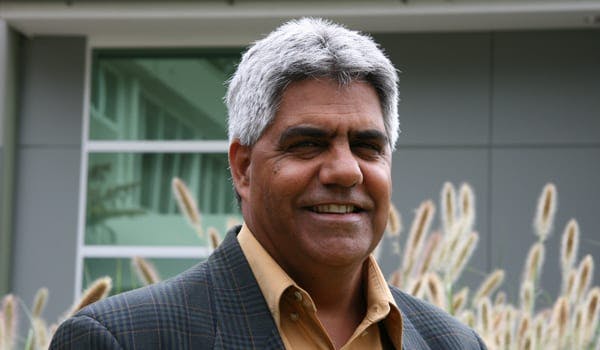Paul Newman has spent more than a decade fostering Indigenous businesses through his online directory and consulting service, Black Pages.
He’s now shining a light on the good news stories he comes across through his online magazine Black Biz.
We spoke to Newman during NAIDOC Week about how far Indigenous business has come:
You founded Black Pages in 1999 when the internet was still relatively young – what led you to create the site?
I studied computers when I undertook my Bachelor of Business degree through the University of Western Sydney (being the first Indigenous business graduate from UWS), and through my initial business studies it provided me with a wealth of information and knowledge on the potential power of computers in the future, particularly the power and benefits of networking via computers.
I was conscious that there was a wealth of Indigenous SMBs and not-for-profit Indigenous community enterprises flourishing across the country, and I thought, wouldn’t it be great to create a national online Indigenous business portal and directory as a ‘one-stop shop’ for Indigenous businesses and community enterprises to do business through a central online Indigenous business portal. Something was needed as Indigenous people were being left out of the emerging information technology age in the 1990s.
It was out of this experience that the Black Pages business portal and Australia’s first national online Indigenous business directory concept was conceived.
How did the site grow to include business support services and web packages, and how did you find the audience?
Our early research highlighted that only around 5% of the Black Pages directory listings had either an email address or a website. Having noticed this, I put a commercial proposal to the former Commonwealth government agency, Aboriginal and Torres Strait Islander Commission (ATSIC) to build websites for the 1000s Indigenous business listings on the Black Pages directory and connect Indigenous businesses and people by email and online.
While welcoming my proposal, the response was a lack of government funding for such a commercial venture from a corporate (privately owned) company like Black Pages. However, if Black Pages was a not-for-profit entity there could be scope for funding such a proposal. When I look back on that experience, it highlighted that I was too early at the time with my commercial business proposal, at that time people could not see the power of the internet for connecting Indigenous communities and business and fostering positive Indigenous economic development, empowerment and ‘self determination’ for Indigenous people.
As more and more Indigenous small businesses and community enterprises started to emerge, and with active marketing through Indigenous and government networks, Black Pages was inundated with requests from Indigenous businesses for business start-up information and development support and people wanting an Indigenous business person and Indigenous owned company like Black Pages to provide the business support services in a professional and culturally appropriate manner.
What led you to create BlackBiz?
BlackBiz was also conceived back in the late 1990s as part of the national Black Pages business portal concept. The development and launching of the first edition of BlackBiz was largely a matter of timing and readiness, as there was now evidence of the Australian Indigenous entrepreneurship coming to age in the 21st century, with an estimated 5,000 or more Indigenous small to medium sized and large corporations and community enterprises now actively doing business in a range of industries across the country.
As a sister company of Black Pages, BlackBiz is a privately owned Indigenous media company, which is funded by myself, and was launched to showcase the good Indigenous news story, and the rich and diverse range of Australian Indigenous businesses and enterprises operating everyday across Australia, with such a positive response being received from both Indigenous and non-Indigenous circles.
What challenges have you faced along the way with both ventures?
As an Indigenous business person, the three main challenges I have faced with both ventures is firstly, ‘being an Aboriginal business’, secondly, cash flow, and thirdly, having the ‘right mix of people and resources’ to help you start and grow your business.
Again, given that Indigenous people have not been historically visible in the mainstream Australian business landscape, many people have assumptions about Indigenous business capacity. They didn’t know that as businessman I also owned a printing and publishing business called Colour My World in Darlinghurst for some years, which as an owner and operator gave me a great insight into the printing and publishing industry. This certainly gave me a good grounding into launching the BlackBiz media company venture.
A significant factor in my success in this area is my extensive background of over 30 years experience working within the ambit of Indigenous affairs on a national level in both voluntary and professional capacities, and establishing key Indigenous and non-Indigenous professional contacts and networks. It is these additional voluntary community experiences that have provided me with ongoing professional development as an Indigenous business entrepreneur, and kept me connected to my grassroots Wiradajuri Aboriginal culture.
What has your favourite part of the journey been?
The constant learning and meeting and working with many wonderful Indigenous and non-Indigenous people and businesses who I see as being champions for enhancing Indigenous socio-economic outcomes and valuing the Indigenous economic contributions to our nation’s rich and diverse business story.

